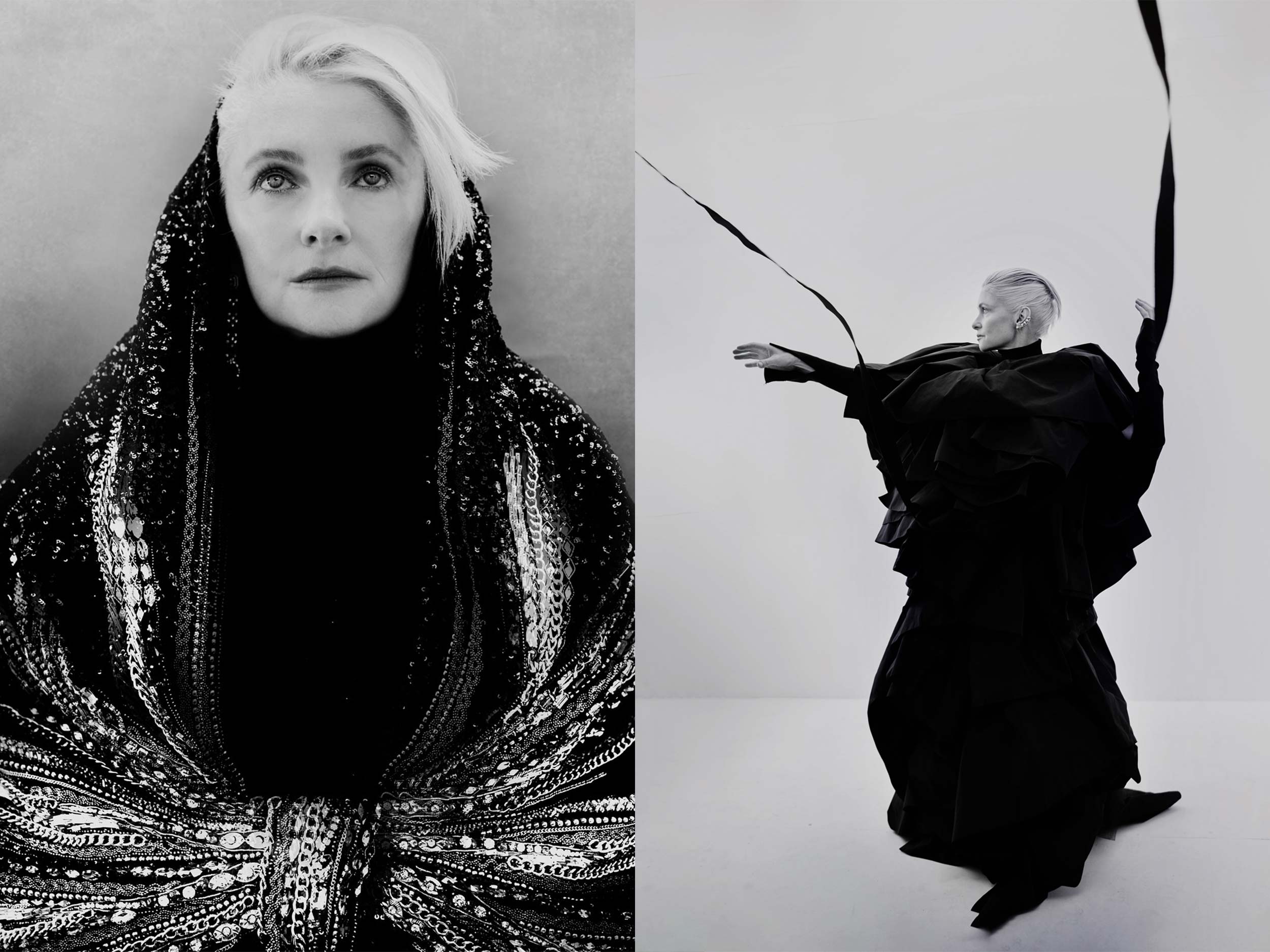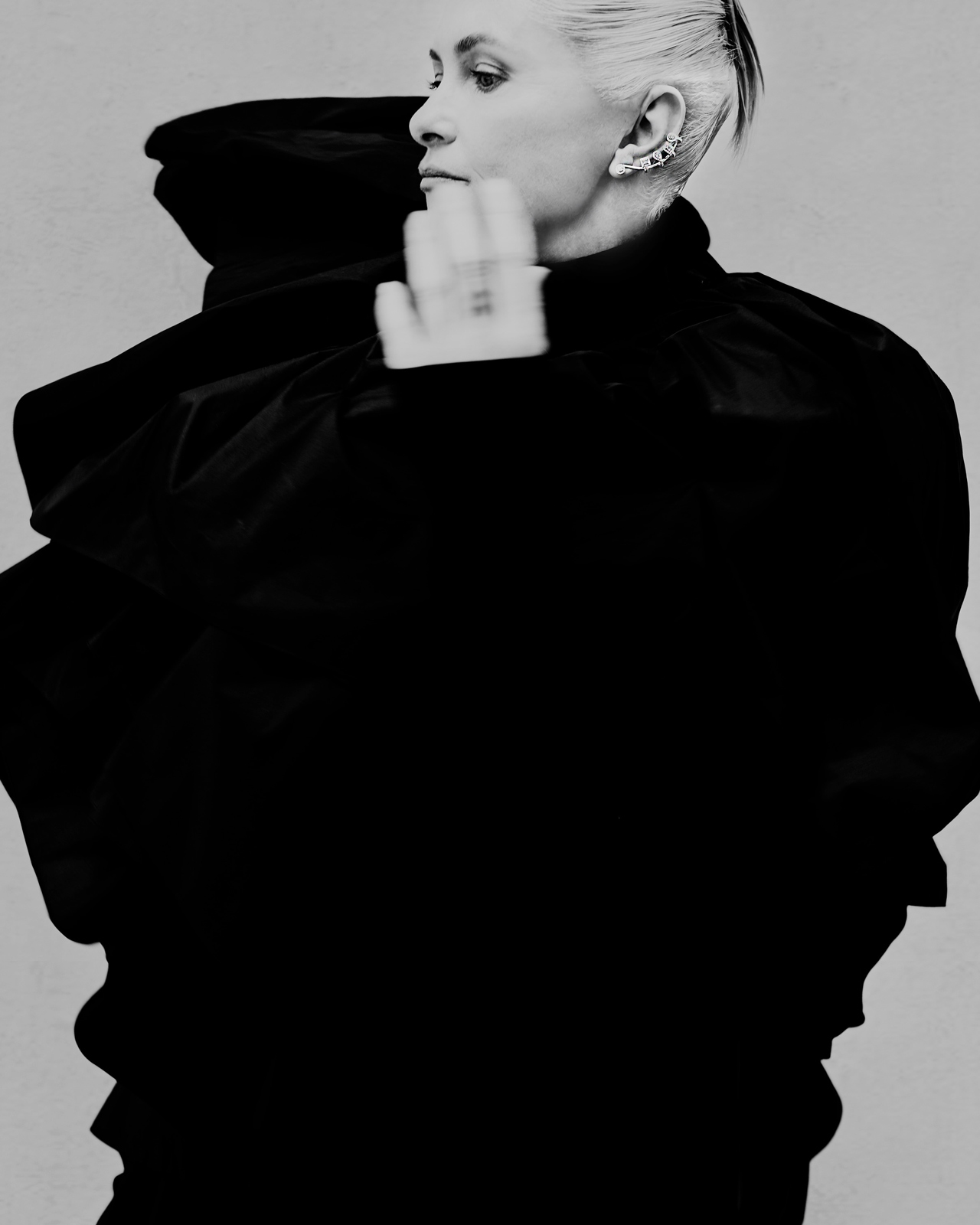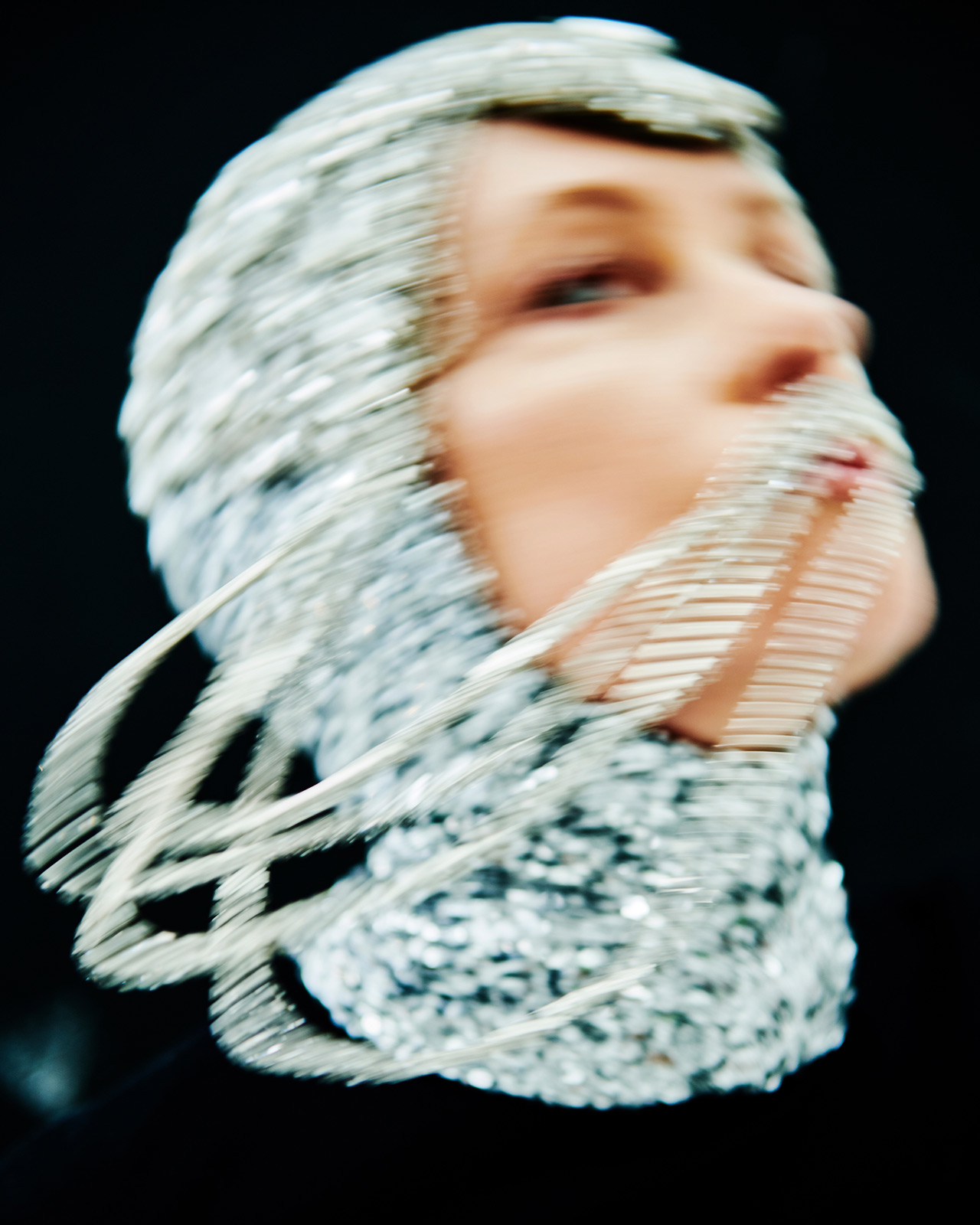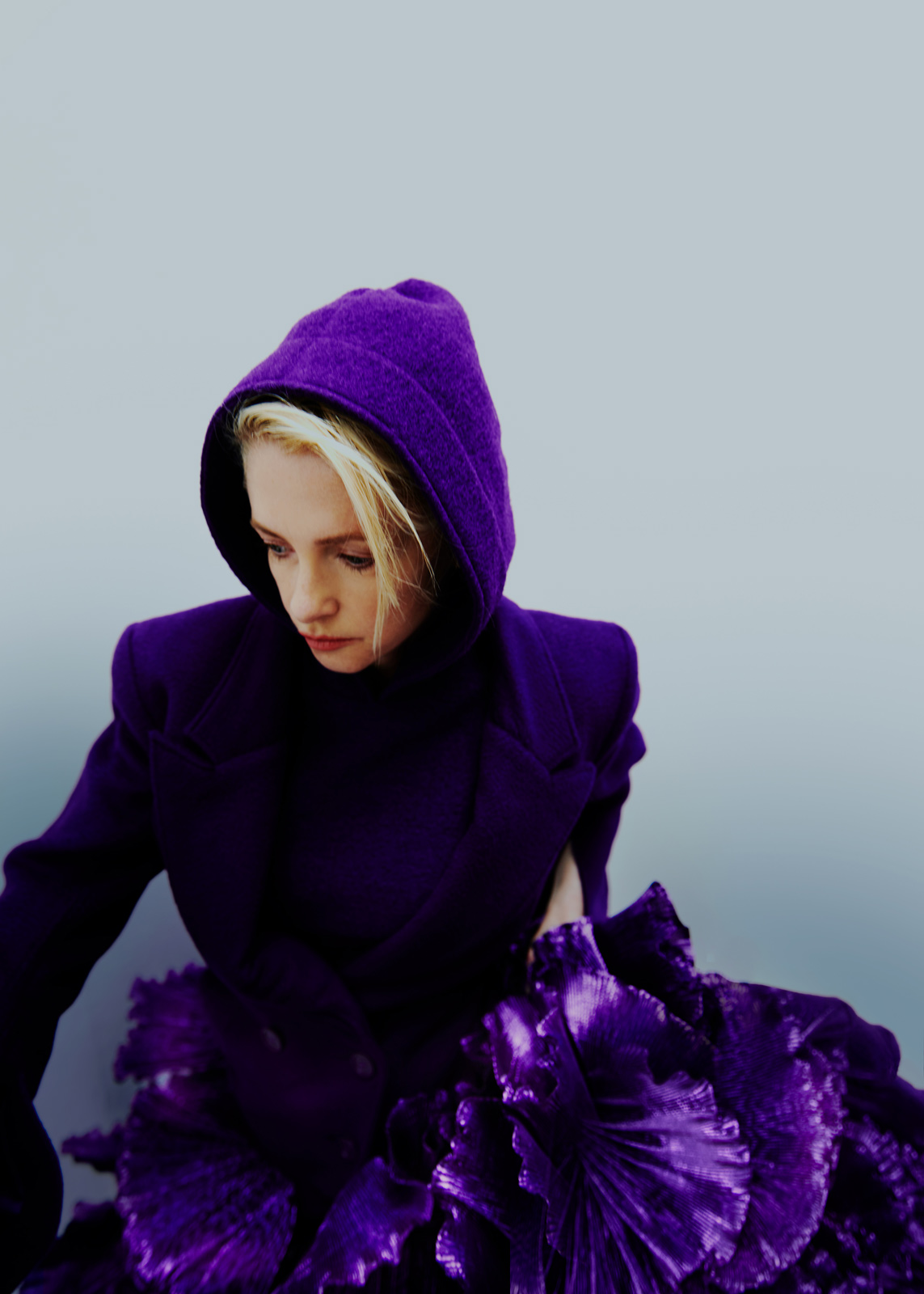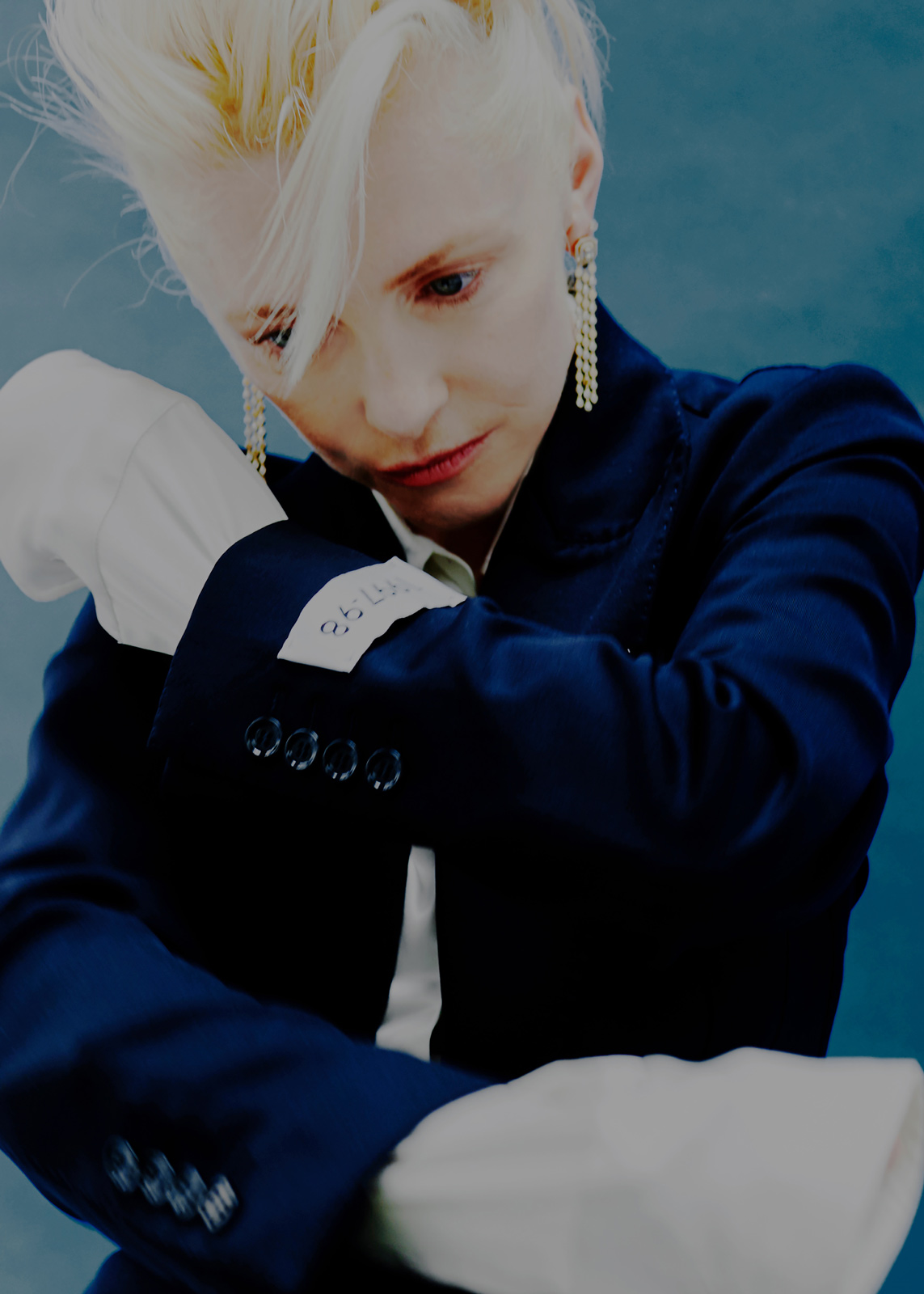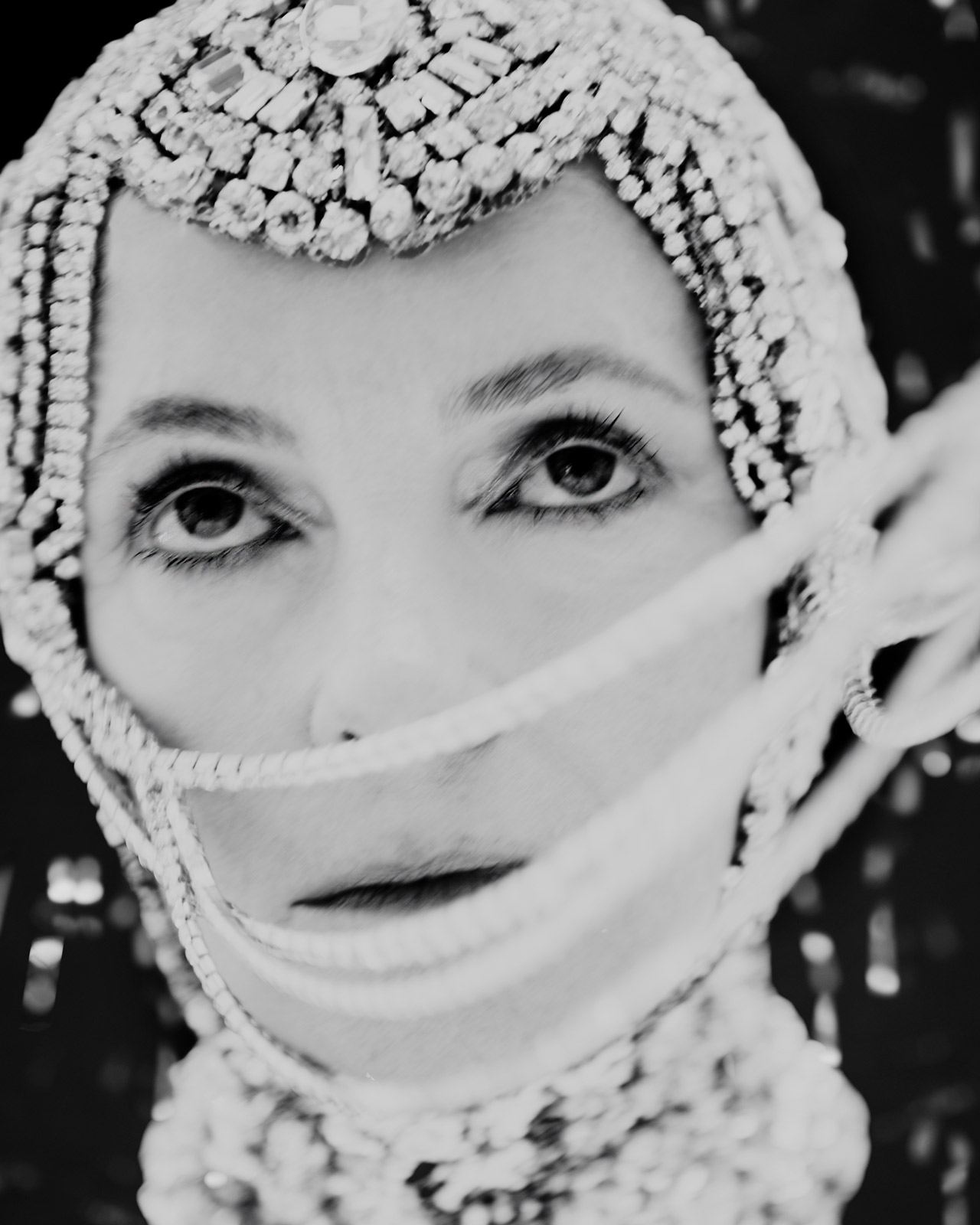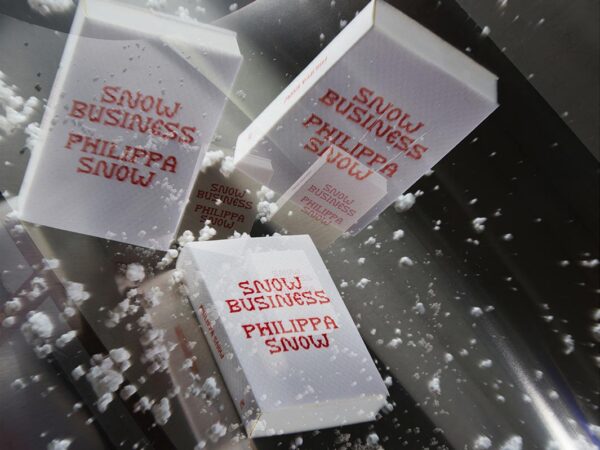Document hears from Alison Goldfrapp at the start of a new journey: destination unknown, but the music is the portal
“I’m not that famous,” Alison Goldfrapp clarifies, in musing on whether the spotlight has changed her. Her music, to be sure, occupies a certain niche: Subtle electronic dance meets breathy, climbing pop—dreamy enough to drive alone to, rapturous enough for the club. Maybe Goldfrapp hasn’t reached the heights of superstardom (nor does she want to, for that matter), but the length and breadth of her career marks a different kind of celebrity. Over nearly a quarter-century, she’s made music that people wait around for—never quite leaving the cultural conversation, nor making it her life.
Putting out new work, however, is bound to bring on scrutiny—especially at a milestone like the one Goldfrapp’s at now. The Love Invention, released this past April, is the 56-year-old artist’s first solo project. Goldfrapp the duo was a creative partnership, with its eponymous half co-writing, co-producing and providing vocals, and producer Will Gregory on the keys and other instruments. Together, the pair crafted seven albums, leaping from genre to genre with the singer as conceptual anchor.
The spirit was collaborative—and remains so today. (The Love Invention doesn’t mark any sort of breaking-up.) But it has been misunderstood: Gregory tended not to tour with Goldfrapp, aside for a few early shows; he once admitted that she worried she’d be seen as “the dumb vocalist,” and that he suspected “people don’t even know I exist.” Their solo ventures can be considered against these fears; but at the end of the day, Goldfrapp has always gravitated toward creative exchange, even with this new album, despite how it could be perceived. “I like that energy, just having a different person in the room,” she says. “Sometimes you have to take yourself out of your comfort zone, in order to move on and make things.”
The Love Invention’s main theme is euphoria—transportive, loud, spontaneous, hot—perhaps at odds with its maker’s day-to-day. “I mean, if you saw where I made the bloody music, you’d go, Crikey,” she says. “It’s not exactly wonderful, or particularly inspiring.” One half of the persona—ex-art student, ex-punk, influence to Madonna—is at odds with the soft-spoken, self-described “hypersensitive” singer on the other end of a phone interview. The music, though, is the connecting factor: “The music is the portal.”
Here, Document hears from Goldfrapp at the start of a new journey—or maybe, as she follows a whim, doing things her way, as she’s always done.
Morgan Becker: There’s been a lot of buzz around the start of your solo career, after 20 years of performing and composing with Will Gregory. How’s the reception been of The Love Invention?
Alison Goldfrapp: It’s been really nice. I mean, I think there must have been, like, two people that were sort of like, …Oh. [Laughs] But it’s [mostly] been really heartening. Feels great.
Morgan: Has your relationship to making new work shifted?
Alison: I’ve always loved working with other people. I like that energy, just having a different person in the room. Sometimes, that can be quite daunting, as well. You’re just getting to know someone, how they work. Sometimes it doesn’t work—but when it does, it’s great. It’s about complementing somebody [new], it’s exciting.
I had sort of lost my mojo a bit—well, quite a bit. And as an artist and a creative person, it’s very important to feel inspired. Sometimes you have to take yourself out of your comfort zone, in order to move on and make things. Otherwise, you just don’t grow. You get bored. I’m all for change.
Morgan: Where did you find that new sense of stimulation?
Alison: You know, I started doing music professionally when I was about 21. I spent time in Antwerp making music, and then I went to art school. I was sort of focusing on visual art. [Those experiences] have an effect on each other. Stepping away from making music [meant I had time to] just reassess things.
It was kind of mad. Just as I was thinking, Yeah! I’ve got my mojo back, bloody lockdown happens. There was this period where I didn’t really do anything, and then something kicked in. It’s had a very positive effect in many ways, because it was a time for reflection, and assessing what it was I wanted in life. Like a lot of people, I made changes and adjusted my ways of thinking—setting up a studio in my house, out of necessity. That kickstarted a new way of working.
Morgan: In the past, you’ve mentioned that—when you’re making music in a duo—you often have to compromise in accordance with your partner’s tastes.
Alison: I didn’t really think too much about that.
Morgan: I mean, I guess you were also collaborating pretty extensively with these other producers. Maybe it was just adapting to new people?
Alison: I was doing quite a lot of work at home, on my own. So that was something new. I don’t think I’d had the confidence to do that before. That was very liberating, if I’m honest. You know, Will’s always worked on other projects throughout Goldfrapp, whereas for me—I’m still collaborating, but it’s in a very different way. This is my album. This is the way I want to do things.
Morgan: With those sonic influences, what would say is the record’s uniting factor? How did you keep it cohesive?
Alison: I was very focused on making an album that was upbeat. I was interested in the idea of euphoria, and how you achieve it in a musical structure. I had these things in mind about a certain type of production and certain sounds I wanted to use. In the process, other things crop up, and something you set out to do ends up sounding completely different—I always like that sort of happy accident. There’s a balance between being free and spontaneous, and [being] focused and kind of forensic.
I guess the cohesive things are maybe the sounds, the rhythms—you start to see patterns and how they relate. And then, of course, there’s my voice. Visually, I thought quite early on, I really want to work with Matt [Maitland]. I could see colors, and I wanted [the project] to have this fantastical element. He’s someone I’ve worked with for a long time, but he’s also got his own particular aesthetic, and I thought it would suit what I was doing.
In the kind of world we’re in—a digital world—[despite] the way we listen to things, I still think an album is very relevant—it’s a body of work. How you listen to it afterwards is totally [up to them]; I love making playlists and listening to individual tracks. It’s quite rare that I’ll listen to a whole album, but I think that’s okay. It’s there to be discovered, at whatever point, wherever you are.
Morgan: Did you have a picture in your mind of where this record might be played?
Alison: Well, anywhere and everywhere. I mean, I always have fantasies about, Oh, it’d be so nice to be in a club. It’s so nice to hear it, like, really, really loud—that bass throbbing away. Equally, I love listening to music while I’m driving. Sometimes, people will message me on Instagram and go, I was on holiday, and I was listening to your album. I was driving through the Italian countryside, or whatever, I was driving around Big Sur. I love hearing that kind of thing. This music is the portal, isn’t it? I mean, if you saw where I made the bloody music, you’d go, Crikey. It’s not exactly wonderful, or particularly inspiring. The music is the portal, where you travel into it.
Morgan: It’s interesting—you’ve said you’re a very visual person, but at the same time, it doesn’t seem like your immediate surroundings have much of an effect on the kind of music you make.
Alison: I do really believe it’s where you travel in your mind. Obviously, your environment can have an effect on what you do. But ultimately, you can go anywhere and be anywhere. It’s funny, I quite often fantasize about being in America when I’m making music. I think it’s because it’s so big. I like to think of a huge vista—some kind of endless vista where your eye can see no end; there is no limit.
Morgan: What were you listening to while you worked on the album, or thinking of composition-wise?
Alison: Practically every song has arpeggiated synths—sort of a staple in a lot of ’80s dance music in Europe, and also kind of a post-punk New York thing. But, you know, simultaneously, I quite often just hear things in my head or fantasize about a certain kind of sound. I kind of try not to listen to other people’s music while making stuff. It’s a funny thing, really—wanting to let things in, and at the same time, trying not to. Or rather, being very, very specific about what you want to let in.
Morgan: At this point in your career, you’ve produced music in so many contexts: so many genres, alongside so many different types of people. How would you say your comfort with being in the public eye has evolved over the years?
Alison: Um, well—god, that’s such a broad, big question.
Morgan: Does it feel different now from how it felt at the start?
Alison: I have definitely changed, absolutely. When I started out, social media wasn’t really a thing; even the last five, six years, it’s changed quite dramatically. I really like being on Instagram. That connection I have with fans—that direction connection—I really like that. In the old days, that was very much led by the record company and the press office and whoever it was. Being much more in charge of your output can be a bit overwhelming, and sometimes it can take up way too much time. But that’s made me more comfortable. I don’t know—I’m not that famous. I think if I was a lot more famous, I wouldn’t be saying this right now.
Around Supernature, there was a lot of attention on us, and I did find that quite hard. I didn’t quite know how to do things. But then [again], we had some pretty crappy people around [laughs]. I don’t think we’re very good at dealing with the business side of things. It’s so important: who you have around you, who’s looking after you. I am a hypersensitive person, and I don’t think the people around us really helped us prepare. You know, that question is such a big question for me. It’s been such a long time, and so many things have changed—the industry has changed so much, and I’ve changed so much. I could go on and on and on about that. I feel more in control of things now, especially with a solo record. I’m a bit more like, Okay, I can do things my way.
Talent Alison Goldfrapp. Hair Adam Garland. Make-up Francesca Brazzo at The Wall Group. Photo Assistant Bia Felicio. Stylist Assistant Monika Paczuska.


